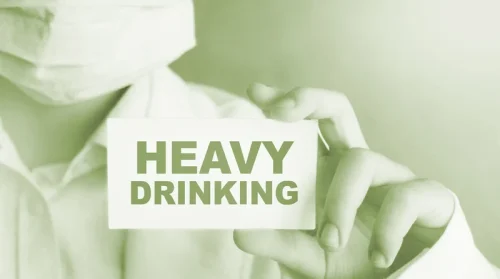
Continued to take personal inventory and when we were wrong, promptlym admitted it.11. Sought though prayer and meditation to improve our conscious contact with God as we understood Him, praying only for knowledge of His will for us and the power to carry that out.12. Having had a spiritual awakening as the result of these steps, we tried to carry this message to alcoholics and to practice these principles in all what does aa stand for alcohol our affairs. AA meetings vary in format, with some focusing on personal stories, readings from the Big Book, or open discussion. Meetings may cater to specific demographics, but they generally welcome anyone who desires to stop drinking. AA is self-supporting, with donations from members covering expenses, and it operates through an “inverted pyramid” structure, where individual groups function autonomously.

Hospitals & institutions
- Love is empathy and compassion, and Step 8 asks you to make a list of everyone you’ve wronged in your journey to where you are now.
- AA’s 12-Step approach follows a set of guidelines designed as “steps” toward recovery, and members can revisit these steps at any time.
- Given the number of individuals struggling with or at risk for an AUD, it is understandable that AA has grown to what it is today—an organization with more than 115,000 groups worldwide.
- Made a searching and fearless moral inventory of ourselves.
- Admitted to God, to ourselves, and to another human being the exact nature of our wrongs.6.
- The Twelve Steps and the fellowship of AA were founded and designed around those principles.
Alcoholics Anonymous has no opinion on outside issues; hence the A.A. Alcoholics Anonymous should remain forever non-professional, but our service centers may employ special workers. Group ought to be fully self-supporting, declining outside contributions. Group ought never endorse, finance or lend the A.A.
Support for Me and My Family
Both Wilson and Smith found that The Oxford Group’s treatment of sin as a “disease” resonated in discussions of their struggles with alcohol. The 12 Principles of AA drew heavily from these spiritual elements. The backbone of the AA program is that people connect with a higher power of their choosing to help them through the process of working the 12 Steps of recovery. AA has no rules on religion or spirituality; what a higher power means to each person will vary.

Support Your Recovery

Even so, the 12 Principles of AA have remained its central guiding influence. Many people suffering from alcoholism continue to find success in recovery by participating in AA’s program. AA also encourages total abstinence to support recovery from alcohol misuse. The program believes that people struggling with addiction likely cannot moderate their drinking and need to stop altogether. The AA Big Book section with personal stories can be particularly helpful to recovering alcoholics. They can read about others who have struggled with alcohol addiction and effectively recovered.
- The Central Office is also fully self-supporting through the sale of literature and member contributions.
- There are many alcohol addiction treatment options today.
- Continued to take personal inventory and when we were wrong, promptlym admitted it.11.
- This is part of our ongoing commitment to ensure FHE Health is trusted as a leader in mental health and addiction care.
- While the chip system is common, it is not universally adopted across all AA groups.
- While it’s true that the 12 Steps were originally based on the principles of a spiritual organization, the world isn’t the same as it was in 1935 when AA and the 12 Step program were founded.
We admitted we were powerless over alcohol, that our lives had become unmanageable.2. Came to believe that a power greater than ourselves could restore us to sanity.3. Made a decision to turn our will and our lives over to the care of God as we understood Him.4. Made a searching and fearless moral inventory of ourselves.5. Admitted to God, to ourselves, and to another human being the exact nature of our wrongs.6.
The 12 Steps are a path to recovery, and the AA Steps and Traditions can be found in the Alcoholics Anonymous Big Book. Alcoholics in AA live their lives in line with a set of “promises,” which also can be found in the AA Big Book. The Twelve Steps are the foundation of Alcoholics Anonymous. By taking these steps, the alcoholic experiences a spiritual awakening or psychic change sufficient to bring about lasting recovery from alcoholism. The Steps are listed beginning on Page 59 of the Big Book of Alcoholics Anonymous.
- AA members will usually emphasise to people who are new to AA that only problem drinkers themselves, individually, can determine whether or not they are in fact alcoholics.
- Once AA managed to help 500 people achieve sobriety, it attracted a more national audience.
- Many people in recovery from alcohol addiction work the 12 Steps with a sponsor as a part of AA.
- The best way to find one is to visit the AA site and locate the central office for your city.
- The program believes that people struggling with addiction likely cannot moderate their drinking and need to stop altogether.
What Are Some Other 12-Step Support Groups?

Given the number of individuals struggling with or at risk for an AUD, it is understandable that AA has grown to what it is today—an organization with more than 115,000 groups worldwide. The purpose is to recover from compulsive, out-of-control behaviors and restore manageability and order to your life. It’s a way of seeing that your behavior is only a symptom, a sort of “check engine” light to investigate what’s really going on under the hood.
They are not abstract theories; they are based on the trial-and-error experience of early members of A.A. They describe the attitudes and activities that these early members believe were important in helping them to achieve sobriety. Acceptance of the Twelve Steps is not mandatory in any sense. Experience suggests, however, that members who make an earnest effort to follow these Steps and to apply them in daily living seem to get far more out of A.A. Than do those members who seem to regard the Steps casually.
